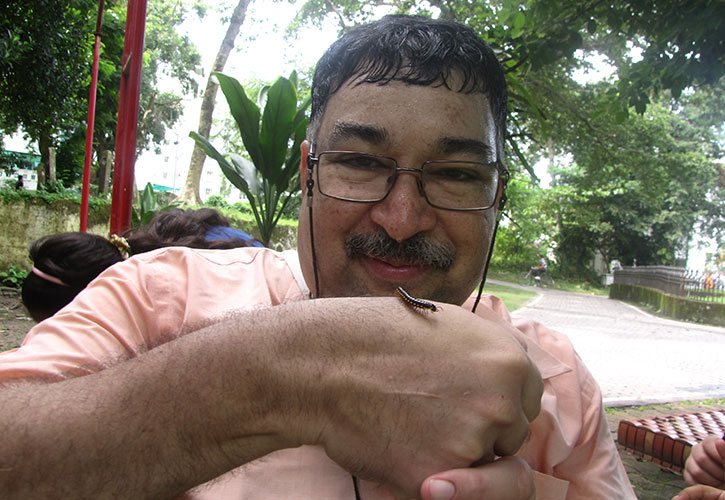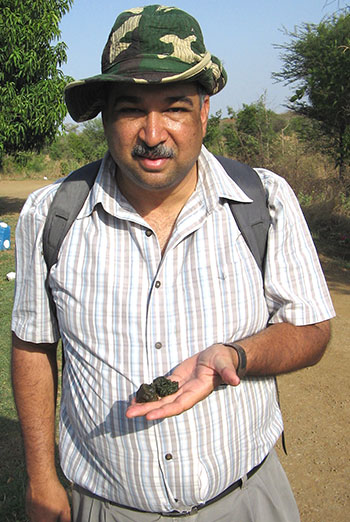



An avid bird-watcher since childhood, Col. Ashwin Baindur did not let his passion die even after joining the Indian Army. He began his birding adventures with the kids in his cantonment in tow wherever he was posted - Wellington, Nilgiris, Bareilly, Pune or Kolkata.
The Painted Stork Nature Club was born out of this passion. Col Baindur says “a child does not pay any money or fill a form to join the club. Any child who attends is considered a member. Some children attend once, some few times and some are regular. There is no compulsion. The facility is extended so that any interested children can come. It does not keep statistics of members but I estimate more than 200 children have been part of it over the years.” The club has a FaceBook & a WhatsApp group. “On social media, we also discuss global environmental issues, astronomy, global warming, wildlife trade, pollution, the sea and oceanography etc,” he says. He says the club was named after the most spectacular bird on the Pune campus.
According to Col Baindur, environmental science is best taught using multiple modes – short classroom sessions, films, show & tell, field trips and activities - because he believes that whatever is “explored” should be made interesting. He attributes de-forestation to a combination of ignorance, self-interest and callousness.
Wherever he is posted, he recommends the planting of suitable tree species for specific purposes - avenue trees along roads, shade trees along the border of open patches, trees to act as windbreaks, flowering trees and plants which release perfume from the flowers at bowers, entry gates, drought-resistant plants where watering cannot be done etc. And in the wild area around the habitation, plants for meeting the needs of biodiversity – birds, plants, bats, civets etc.
During each trip, Col Baindur helps children appreciate biodiversity and discusses the ecological importance of each tree or bird species they encounter. “So at a wild fig tree, we talk about – figs, barbets, pigeons, mynahs, frugivores, feeding guilds, the fascinating life of fig-wasps, camouflage, bird calls, appearance of fruits in seasons, how birds feed throughout the year etc, etc. “
“At the wetlands, we discuss the feeding tactics of birds, water quality, floating, suspended and lake bottom vegetation, COD, BOD, piscivores, the open-billed stork and how it eats snails, why ducks prefer different areas in lakes, dabbling vs diving ducks, modification of beaks of spoonbills and ibis, migration, that predators migrate with prey, how cormorants hunt singly o in packs, why cormorants need to dry their wings, etc.”
The present generation suffers from “nature deficit syndrome” given their addiction to gadgets like iPads and mobile phones and drawing them out of this to focus on tigers, sparrows and forests can be challenging unless you are a wonderful teacher. But Baindur did just that by involving children in environmental projects like bird watching, tree watching or making them aware of dangers of pollution and deforestation.
A multi-faceted personality, the Colonel also edits biodiversity and science articles in Wikipedia and is also a snake rescuer.
